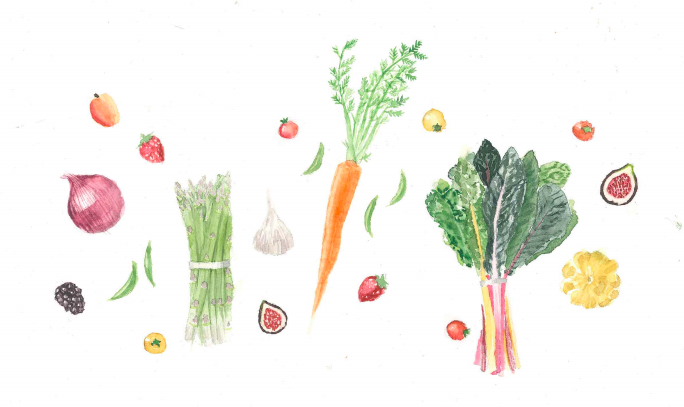Avoid Factory Farms; Shop at Farmers’ Markets
April 25, 2018
Conventional agriculture has provided massive populations with access to fruits, vegetables, and other food products for hundreds of years. Especially with the exponentially growing human population, there is high demand for these products in order to sustain healthy lifestyles. However, products in conventional supermarkets are often produced in a way that prioritizes maximum production and minimum cost over environmental sustainability. Mass production of crops and livestock, or “factory farming” is one of the most significant human contributors to climate change and is extremely harmful to pre-existing ecosystems.
For example, factory farming accounts for over 37% of methane emissions worldwide, methane being a greenhouse gas which contributes significantly more to climate change than the much-vilified carbon dioxide. Methane is excreted by cattle, sheep, and goats during digestion. Conventional livestock are kept in enormous quantities in a small area, so they produce much more methane than livestock on smaller farms.
Even so, the contribution to carbon dioxide emissions isn’t to be overlooked, with factory farming putting out 90 million tons of the harmful gas into our atmosphere each year. This is primarily because food in supermarkets often has to take a long trip by truck or plane (CO2 releasing vehicles) from where it was grown.
Another detrimental result of factory farming is mass deforestation. More than 260 million acres of forest have been cleared to make room for crop fields in the United States alone—and millions more acres worldwide. Trees absorb carbon dioxide from the air, so deforestation significantly contributes to climate change because it increases the amount of this harmful greenhouse gas in our atmosphere. Deforestation also destroys the habitats of forest-dwelling animals and can cause many species to go extinct.
Lastly, factory farming consumes 70% of the world’s water supply and is responsible for an estimated 75% of water quality problems in rivers and streams. Industrial livestock farms are a prominent contributor to water pollution because of the enormous amounts of animal waste which are piled into storage pools that leak into nearby waterways. A shortage of clean, uncontaminated water is destructive to ecosystems and human communities alike; it is important that water is conserved and protected as much as possible—we cannot afford to let so much of it go to waste.
Fortunately, Cambridge is home to a number of farmers’ markets, ensuring that residents have access to a variety of locally-sourced foods. The markets offer a wide selection beyond plant-based items. They also provide access to local and humanely produced meat, eggs, and dairy; pastries from nearby bakeries; and many more unique and tempting food options contributed by local businesses. They are all over the city, in full swing even in the winter—with varying locations and vendors. The schedule can be found on the City of Cambridge website here.
Some of the vendors that sell food at farmers’ markets in Cambridge include C&C Lobsters and Fish, Kimball Fruit Farm, Coastal Vineyards, Taza Chocolate, Hi-Rise Bakery, and Q’s Nuts. Vendors need to be certified by the board of health in their county or area before they can sell their produce at local farmers’ markets to ensure that their food doesn’t carry any diseases and is safe to eat.
In order to maintain the beautiful and diverse planet we live on, it is necessary to take immediate action to make our lifestyles more sustainable. Though small, everyday changes may not seem like significant contributions, the actions of many individuals can add up to create exponential change—and shopping at farmers’ markets is a convenient and fun way to do your part!
This piece also appears in our March/April print edition.









